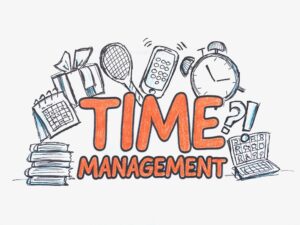
work front is essential. Keeping up with the changing demands of the job market can be daunting, but having the right tools to succeed can make all the difference. In this post, we’ll look at eight essential skills that can help you to get ahead and stay ahead on the work front.
1. Self-regulation
When you self-regulate, you can successfully manage your emotions. When there’s a challenging, taxing, or negative situation, you think through the situation and respond rationally instead of with a knee-jerk or emotional reaction.
2. Growth mindset:
When challenges and setbacks do happen, you greet them with open arms. Those with a growth mindset believe these situations are an opportunity to learn and grow. More importantly, those with a growth mindset believe in their ability to master the situation.
3. Resilience:
Failure happens to everyone. But those with resilience don’t mind when they fail. They accept that something doesn’t work and pivot to find a different solution to their problem or challenge.
4. Passion:
Being good at something makes it easier to do. However, more is needed to continue doing it. Passion drives you to succeed at whatever goal you set for yourself. No matter how long it takes you to master something, your passion drives you forward until you achieve your goal.

5) Time management:
Time management skills are essential for productivity. Employees who use their time effectively might meet deadlines and ensure the rest of the team gets their work done on time. Some elements of time management include:
- Prioritizing tasks
- Planning ahead
- Staying organized
- Scheduling tasks
- Having goals
- Using to-do lists
- Understanding how much time and effort a task requires
6. Empathy:
Relationship building is crucial in business. Employees need to build relationships with one another and with clients. Empathy helps your employees develop relationships. Being empathetic allows employees to put themselves in someone else’s position. It can help them understand how to interact with colleagues. Empathy can also help employees provide the best support for clients or develop new solutions that might help clients by understanding what they want and need.
7. Conflict resolution:
Even with solid teamwork and communication skills, employees might need more support at work. People with strong conflict resolution skills understand how to navigate the situation without escalating it. This involves listening to the other side, considering the situation, and coming up with solutions. Unresolved conflict can interrupt work, which hurts productivity. Resolving conflict helps maintain a positive work environment.
Conclusion:
To work as a professional, you need skills like Self-regulation, Conflict resolution, Time management, Resilience, Passion, Growth mindset. You can grow those skills on the work front.
faqs
Q: Can I develop these skills independently or do I need professional help?
A: You can develop these skills on your own. Various resources available online and offline, such as books, articles, videos, workshops, and courses, can help you improve your skills. However, professional help can also be beneficial, especially if you want personalized feedback, guidance, and support from an expert or a mentor.
Q: Which skill is the most important for success on the work front?
A: It’s difficult to say which skill is the most important, as they all contribute to your overall success. However, communication skills are the foundation for building solid relationships, conveying ideas and information, and resolving conflicts. Therefore, improving your communication skills can positively impact other skills and enhance your overall effectiveness.
Q: How can I assess my current level of these skills?
A: There are various ways to assess your current level of these skills, such as self-assessment, feedback from others, performance reviews, and skill tests. Self-assessment involves reflecting on strengths and weaknesses, setting goals, and tracking progress. Feedback from others can provide valuable insights and perspectives on your skills and behavior. Performance reviews can evaluate your achievements and areas for improvement. Skill tests can measure your knowledge and proficiency in specific skills.
Q: Can I improve these skills even if I am introverted or shy?
A: Improving these skills is possible, even if you are introverted or shy. While it may require more effort and practice for introverts or shy individuals to express themselves, interact with others, and lead teams, they can still develop these skills using their unique strengths and preferences. For example, they can use their listening, written communication, problem-solving, and strategic thinking skills to contribute to team goals. They can also seek opportunities to work on projects or tasks that align with their interests and passions.

